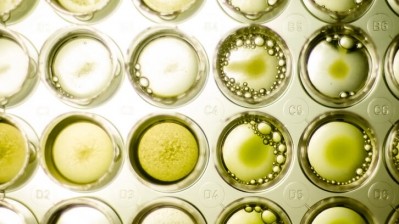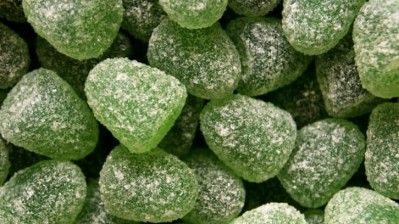Mara partners with Checkerspot to ferment microalgae-based omega-3s

“Leveraging Checkerspot's expertise in microalgae and fermentation techniques to develop specific triglyceride oils, at scale, perfectly aligns with Mara Renewables' commitment to sustainable innovation," said Harry Boot, CEO at Mara Renewables. "This partnership enables us to deliver superior omega-3 oils with a unique fatty acid composition for improved performance."
Based in Alameda, CA, Checkerspot develops a wide range of products across industrial materials, outdoor recreation, personal care, and food and nutrition to reduce global dependence on fossil fuels and other unsustainable sources of oil.
From science project to culture collection
Founded in 2012 in Nova Scotia, Mara Renewables began as a science project on omega-3 production for manufacturer Ocean Nutrition Canada, which was acquired by life sciences company Royal DSM that same year in order to bolster its global nutritional lipids growth platform.
At the time, Mara’s investigation had led to the isolation of a proprietary strain of algae Schizochytrium sp. T18 off the shores of Atlantic Canada that produces docosahexaenoic acid (DHA)-rich omega-3 fatty acids. This strain was then evolved and commercially farmed via fermentation at Mara’s manufacturing facility in the UK to supply nutritional oils across children’s formulas, dietary supplements and food applications.
Flash forward to 2022, and Mara announced that it had raised $39.5 million in growth equity towards its continued mission to harness the power of the ocean without harvesting its resources.
“In 2021 alone, Mara supplied enough DHA-rich fatty acids to the nutritional supplement and food and beverage markets to offset an estimated 7.3 billion fish (anchovy),” the company shared in a statement.
Over the years, it has also developed a culture collection of more than 2,000 unique algal strains collected across Canada and through partners in other parts of the world.
From sugar to fish oil
Mara Renewables turned to Checkerspot for its advanced biotechnology capabilities, which include a closed-loop fermentation process that relies on renewable sugar rather than marine sources, to produce omega-3 rich triglyceride oils, including both DHA and EPA.
“By joining our biotechnology platform with Mara Renewables, we are equipped to accelerate the development and commercialization of next-generation omega-3 alternatives, ushering in a new era of responsible nutrition," said Scott Franklin, chief science office and cofounder of Checkerspot.
While the overall sugar-to-oil fermentation process will be quite similar to the one employed at the Mara Renewables factory in the UK, the companies said the collaboration is focused on optimizing the strain and particular fermentation conditions for this project.
“When furnished with nitrogen and sugar, these microalgae divide, producing daughter cells and very little oil,” Checkerspot explained. “When deprived of nitrogen and continuously fed sugar, they lay down stores of oils rich in omega-3 fatty acids.”
Bringing the ingredient to market, complete with the testing and regulatory compliance required, could take up to three years, the companies indicated.
















